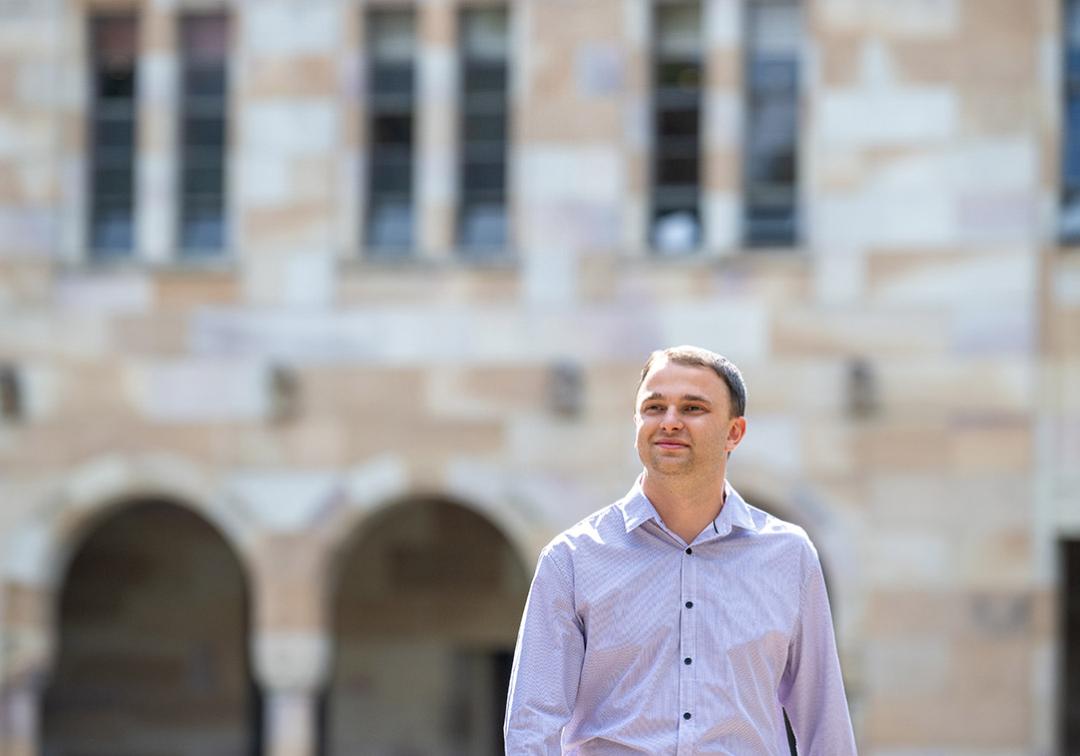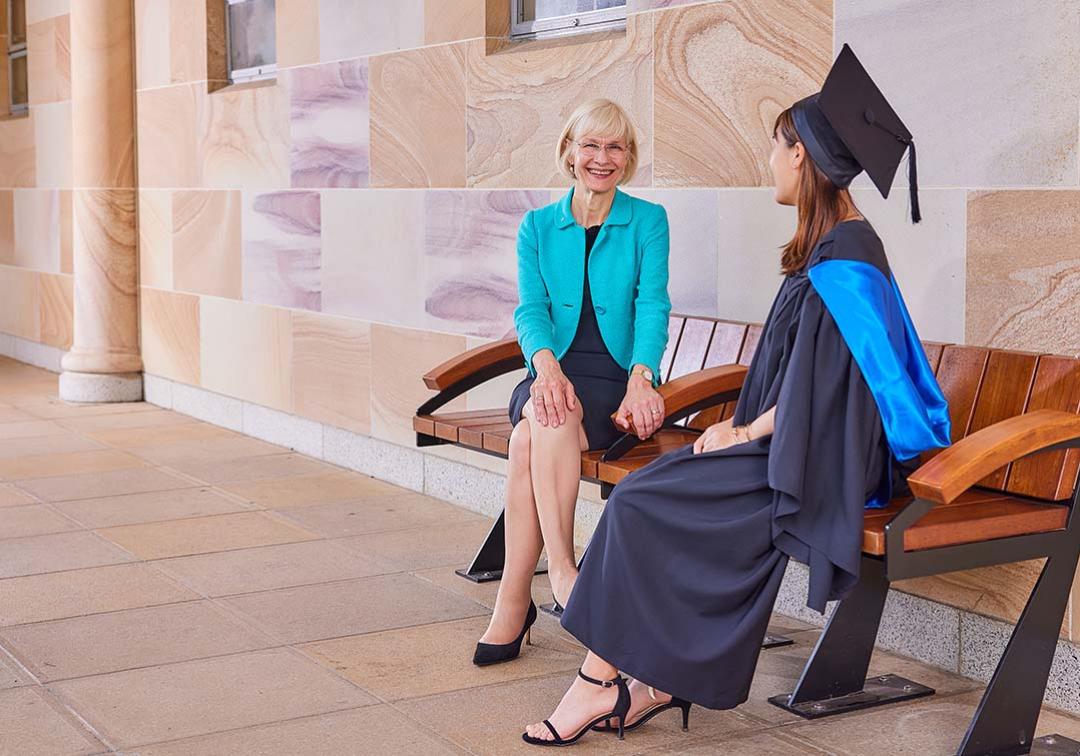
Bachelor of Regional and Town Planning
Overview
Develop the knowledge and skills needed to help communities, companies and governments integrate the environmental, economic and social aspects of development, from site design to regional scale analysis.
As you gain the necessary skills to plan cities and regional towns, you'll learn to balance infrastructure development with preservation of the natural environment.
You'll study land use, urban design, transport and infrastructure planning, heritage and conservation, resource management, environmental monitoring, planning law and practice, commercial and industrial development, and policy making and implementation.
Gain practical skills in planning and design through project work. These projects will vary in complexity and provide an opportunity for you to work with local authorities and community organisations.
You'll graduate with a qualification recognised by the Planning Institute of Australia and be prepared for a variety of interesting roles in the public, private and civil society sectors.
If you want to challenge yourself and conduct research in an area that fascinates you, or prepare for a master's degree or PhD, you can do so with the Bachelor of Regional and Town Planning (Honours) program. You can apply to transfer into this honours program at the end of your third year in the Bachelor of Regional and Town Planning.
Program highlights
- Apply your planning theory and develop your design skills by working on real-life planning projects with industry partners in every year of the program.
- Focus your planning qualification through your choice of specialised electives.
- Gain the professional recognition of an accreditation by studying at UQ’s Regional and Town Planning program, which is fully accredited by the Planning Institute of Australia.
- Open pathways to further studies in regional development or honours.
How you'll learn
Your learning experiences are designed to best suit the learning outcomes of the courses you choose.
- Lectures
- Tutorials
- Work placements
- Overseas study
- Fieldwork
- Studios
- Workshops
What you'll study
At UQ, degrees are called 'programs' and subjects are called 'courses'. Here's a sample of the courses you could study in this program:
- Resource Management & Environmental Planning
- Climate Change and Environmental Management
- Transport Planning
- Community Planning & Participation
Career possibilities
Our programs prepare you for your first job and beyond. Here are some of the careers you could be on your way to:
- Town planner
- Spatial data specialist
- Regional development manager
- Urban designer
- City design coordinator
- Heritage consultant
- Conservation officer
- Strategic land use planner
- Transport planner
Next steps after graduation
You'll enter a dynamic industry that improves the quality of life for people in cities and regions. As a UQ graduate, your ability to make environmentally, socially and economically sustainable decisions will be highly sought after by employers.
You could be employed in a variety of roles in the public, private and civil society sectors, including:
- statutory or strategic planning
- regional development
- urban design
- environmental management and monitoring
- technology for planning
- spatial planning
- commercial and industrial development
- engineering and architectural applications
- heritage and conservation
- land-use planning
- planning law and practice
- resource management
- social planning
- tourism
- transport planning.
If you graduate with honours you can also choose to further your research ambitions by enrolling in Master of Philosophy or PhD programs, both in Australia and internationally, where you can continue developing your research skills and make useful contributions to knowledge.
Program accreditation
The Bachelor of Regional and Town Planning is accredited by:
- Planning Institute Of Australia
Events
See all eventsStories
See all stories
Study tips
Study environmental conservation as a postgrad at UQ
5-minute read

Uni life
What’s it like to study agriculture, environment and sustainability as a postgraduate?
6-minute read
Stories
See all stories
Study tips
Study environmental conservation as a postgrad at UQ
5-minute read

Uni life
What’s it like to study agriculture, environment and sustainability as a postgraduate?
6-minute read
Entry requirements
Prerequisites
- General English subject (Units 3 & 4, C).
Prerequisites
- General English subject (Units 3 & 4, C).
Entry score threshold
| ATAR / Rank | IB |
|---|---|
| 80 | 28.75 |
These are the lowest adjusted scores we made an offer to in Semester 1, 2024. Entry scores are based on the most recent Semester 1 intake and are updated in April each year. Meeting the entry score threshold doesn't guarantee admission.
Guarantee your place at UQ: If you meet our guaranteed minimum ATAR you could secure an offer for your preferred program.
English language requirements
IELTS overall 6.5; reading 6; writing 6; speaking 6; listening 6. For other English Language Proficiency Tests and Scores approved for UQ
TOEFL iBT (including Paper Edition) - Overall 87, listening 19, reading 19, writing 21 and speaking 19.
PTE Academic - Overall Score of 64 and 60 in all sub bands.
BE - A minimum overall grade of 4 plus a minimum grade of C in all macro skills.
CES - Overall 176 and 169 in all sub bands.
OET is not accepted.
There are other ways to meet the English language requirements. For some programs, additional conditions apply.
Student visas
International students who are accepted into full-time study in the Bachelor of Regional and Town Planning are eligible to apply for an Australian student visa (subclass 500).
There are a number of requirements you must satisfy before a visa is granted, including the Genuine Student (GS) requirement.
Entry score range
This table shows the range of entry scores for recent secondary students offered a place in the B Regional & Town Planning for Semester 1, 2024
| Without adjustments | With adjustments | |
|---|---|---|
| Highest | 92.75 | 94.2 |
| Median | 84.3 | 84.3 |
| Lowest | 77.05 | 80 |
Who you'll study with
Here's a snapshot of our student intake for this program in Semester 1, 2024:
| Applicant background | Number of students | Percentage of all students |
|---|---|---|
(A) Higher education study | <5 | <5 |
(B) Vocational Education and Training (VET) study | <5 | <5 |
(C) Work and life experience | 0 | 0% |
| (D) Recent secondary education | ||
| 15 | 75% |
| 0 | 0% |
| 0 | 0% |
International students | <5 | <5 |
Total | 20 | 100% |
"<5" — The number of students is less than 5.
N/A — Students not accepted in this category.
N/P — Not published. The number is hidden to protect the privacy of students in other cells.
Need help meeting the entry requirements?
Fees and Scholarships
Indicative annual fee
Approximate yearly cost of tuition (16 units). Your fees will vary according to your selected courses and study load. Fees are reviewed each year and may increase.
$10,947
2024
Fee information for 2025 is not yet available. Fee information displayed is for 2024.
$10,947
2025
Approximate yearly cost of tuition (16 units). Your fees will vary according to your study load. Fees are reviewed each year and may increase.
AUD $50,560
2024
Fee information for 2025 is not yet available. Fee information displayed is for 2024.
AUD $50,560
2025
Government assistance
Financial aid
As an international student, you might be eligible for financial aid – either from your home country, or from the Australian Government.
HECS-HELP
Domestic places in the Bachelor of Regional and Town Planning are Commonwealth Supported. This means the cost of your education is shared between you and the Australian Government.
Instead of tuition fees, Commonwealth Supported students pay what are called student contribution amounts.
HECS-HELP is an Australian Government loan scheme to assist eligible students with the cost of their student contribution amounts.
Centrelink support
The Australian Government offers a number of income-support payments to eligible Australian university students.
Scholarships
You may be eligible for more than 100 scholarships, including:
How to apply
Applying online
If your senior schooling is from outside Australia, you can submit your application to UQ. Or, if you prefer, you can use an approved UQ agent in your country.
The program code for the Bachelor of Regional and Town Planning is 2063.
Find out more about applying for undergraduate study
If your senior schooling is from Australia
Submit your application to the Queensland Tertiary Admissions Centre if you're an international student who is currently studying:
- Australian Year 12 (in Australia or another country), or
- the International Baccalaureate in Australia.
The QTAC code for the Bachelor of Regional and Town Planning is 702002.
Applying through QTAC
All domestic applications should be submitted to the Queensland Tertiary Admissions Centre (QTAC).
The QTAC code for the Bachelor of Regional and Town Planning is 702002.
Important dates
If you’re studying Year 12 in Australia, go to the QTAC website to check the closing date for this program.
If you’re applying to UQ, the closing date for this program is:
- To commence study in semester 2 - May 31 of the year of commencement.
- To commence study in semester 1 - November 30 of the previous year.
To learn more about UQ dates, including semester start dates, view the Academic Calendar.
Important dates
To check the closing date for this program, go to the QTAC website.
To learn more about UQ dates, including semester start dates, view the Academic Calendar.
Admissions schemes
Applying to university can be both exciting and daunting, which is why we’ve tried to make the process as simple as we can.
We have several schemes in place to improve your chances of getting a place at UQ.
Pathway options
A rank or score doesn’t determine your potential.
If you're not offered a place in your first-choice program – or if you don't meet the entry requirements – you still have a number of options.
Aboriginal and Torres Strait Islander applicants
For support with applying – or if you have any questions about university life – get in touch with our Aboriginal and Torres Strait Islander Studies Unit.
Explore other programs
Express yourself. And your interest.
They say choosing a degree is hard, which is why we've made it easy. Register your interest and we'll send you everything you need to know about applying to UQ.






